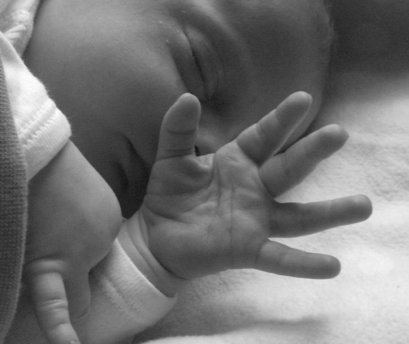Bridging the gap between infant neurobehavioural research and the everyday care of babies
Supporting early infant Development
Dr Nisha Brown PhD is a paediatric occupational therapist whose special area of interest is early infant development.
Nisha seeks to bridge the gap between research findings in the field of infant neurobehaviour (babies’ behavioural, physical and neurological development) and clinical practice. This has particular importance for the information and advice that is given to parents.
- Nisha practices at Offspring Child Health Specialists in Hawthorn (Melbourne) where she helps babies and their families with a wide variety of issues relating to early infant development (e.g. movement, social engagement, behavioural cues, self-regulation, settling and sleep, and coping with everyday activities with sensitive babies).
- Nisha sees families with babies who may be at developmental risk (e.g. preterm infants); and also well babies whose family would like additional information about understanding and supporting their early development and behavioural cues of their individual baby.
- In addition, Nisha provides private outreach services, including home-visits.
- Nisha also runs regular workshops for parents (ante-natal and post natal) relating to newborn behaviours and supporting development from birth. Refer to her 'workshop calendar' page for the latest timetable.
You may see Nisha in private practice, at your home, attend a workshop, or as some families find helpful, a combination of any of these options
Clinical Interests
Nisha has a special interest in:
- infant development from birth
- infant interactions
- the recognition of subtle infant ‘behavioural cues'
- settling and sleep patterns
- infant self-regulation (self-calming)
- babies with discomfort (e.g. food intolerances, reflux, GOR)
- preterm infant development (monitoring and intervention)
- babies with movement difficulties or developmental delay
- babies at developmental risk (movement, play and interactions, including sensory and emotional regulation)
Supporting development
Understanding the behaviour and body language of babies enables parents to be sensitive and responsive to their baby’s needs, helping babies to feel secure. Research shows that this security leads to greater independence earlier on in life. Understanding, and thus being able to support, your baby’s physical and behavioural development as you complete all the everyday activities involved with caring for a baby (such as dressing, bathing, feeding, playing, comforting and settling to sleep) also helps to create an environment that is less stressful, not only for a baby, but for everyone involved.
For example, understanding the reason why your newborn baby doesn't cope so well with their bath (e.g. because they are have difficulty self-regulating their body movements — a normal occurrence) means that you can work out how to help them (e.g. by providing greater physical support, such as putting them into their bath whilst still gently contained/wrapped in a light cotton muslin). Similarly, if your baby is easily overwhelmed in a bright environment (as many are), try talking with the light dimmed and you may find they have so much more to say!
The role of parenting is notoriously plagued with questions!
Not in the least because each little baby is an individual, with their own ways of being, doing and learning. But this is also what makes them just so unique and special. With the sharing of knowledge, Nisha can help you to answer your own parenting questions that may (or may not!) relate to:
- “Why is my baby crying?”
- “My baby seems fussy and overly sensitive"
- “My baby is hard to settle or to put down to sleep”
- “My baby’s head is an odd shape – what should I do?”
- “Is my baby’s development normal?”
- “My baby doesn’t like tummy time, how can I make it easier?”
- “My baby doesn’t seem to like me”
- “I’m not sure if I should do baby massage?”
- “Why does my baby respond like this sometimes and not other times?”
- “What does this particular behaviour mean?”
and many more...
Some parents may have antenatal questions such as “What do I need to know about baby development for when my baby arrives?” From February 2017, Nisha will be running regular antenatal information sessions for expectant parents. Are you "Baby Ready"? Do you know how to recognise when your baby is overwhelmed? Or how to support to your baby's communication ('behavioural cues')?
And if a preterm birth is imminent, you may like to learn a little about supporting the development of babies in special care.
NICU & RESEARCH
Nisha worked clinically in the neonatal intensive and special care nurseries at the Royal Women’s Hospital for many years. Her role here included establishing a neurodevelopmental therapy team to provide developmental support to infants, and education to health professionals and parents.
Her PhD and post-doctoral studies included a detailed examination of baby behaviours and relationships with brain development on MRI, and later developmental outcomes (for both very preterm infants and healthy full-term infants).
Nisha's research was based at the Royal Women’s Hospital and the Royal Children’s Hospital in Melbourne, supported by the Murdoch Childrens Research Institute (MCRI) and The University of Melbourne.
Nisha hopes her new infant development practice, and the baby behavioural guide that she has commenced writing, will assist families to provide daily support to their baby’s individual development and to maximise their child’s learning potential, from the very beginning of life.
Photographs by Tuesday Veldhoven





